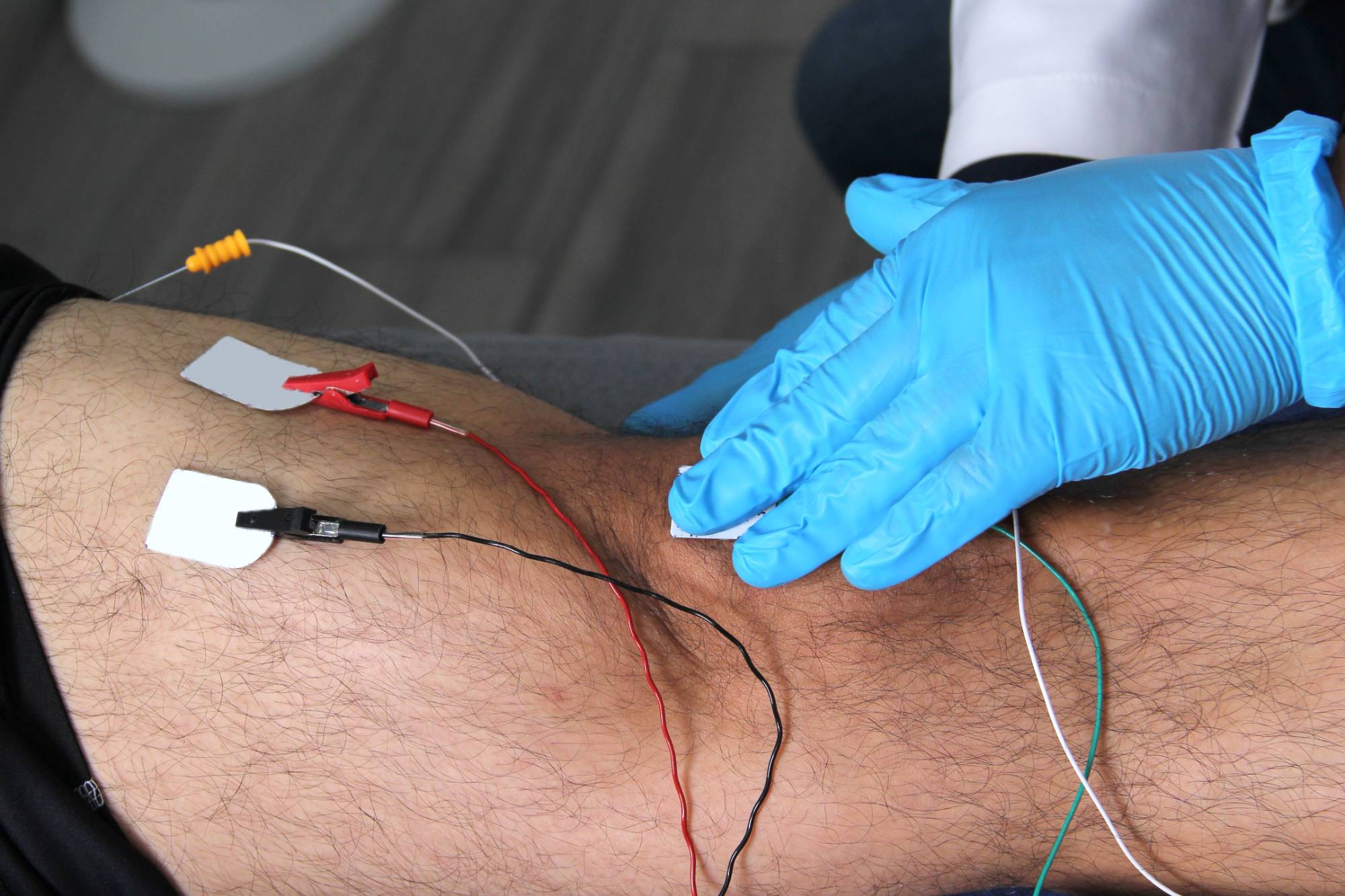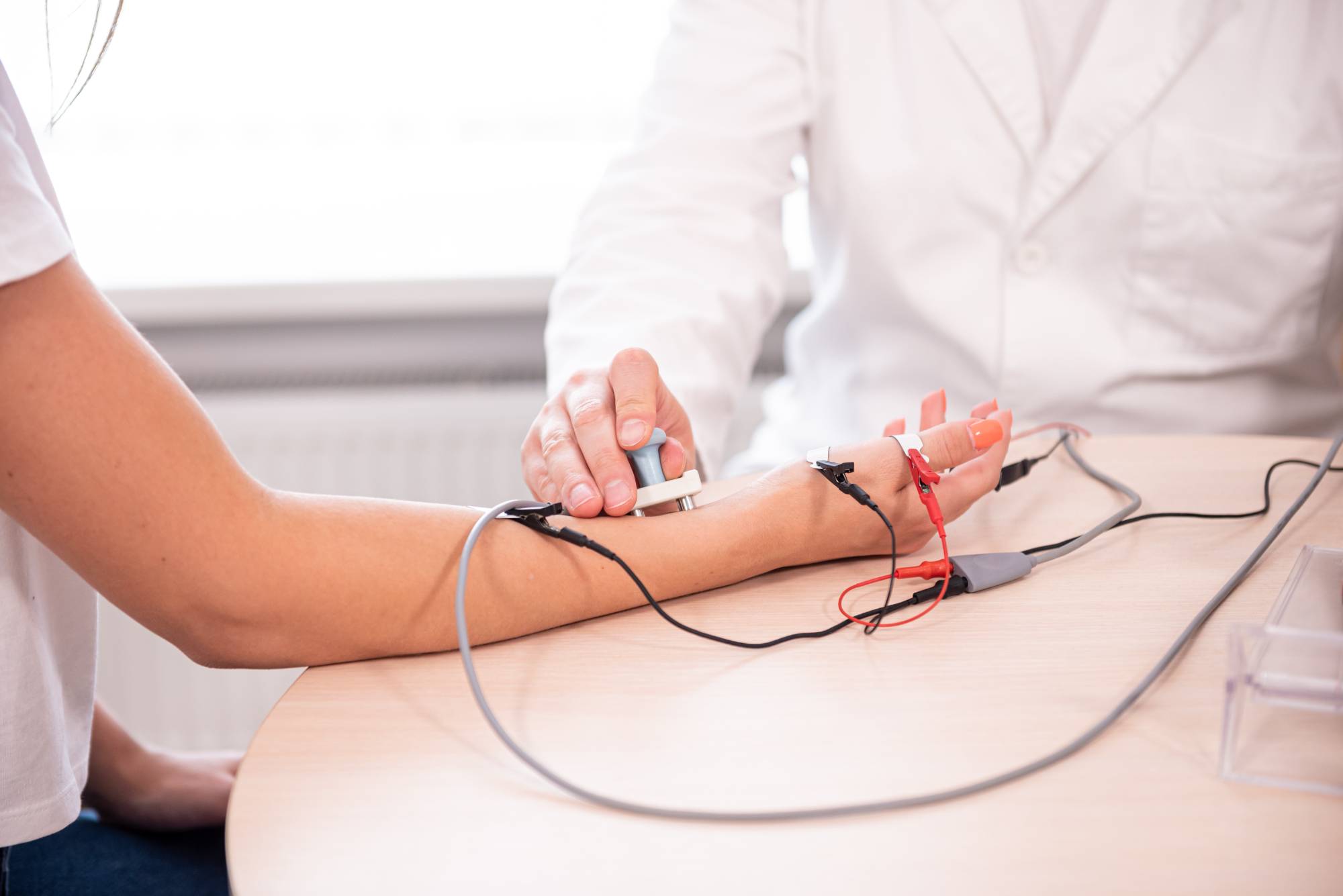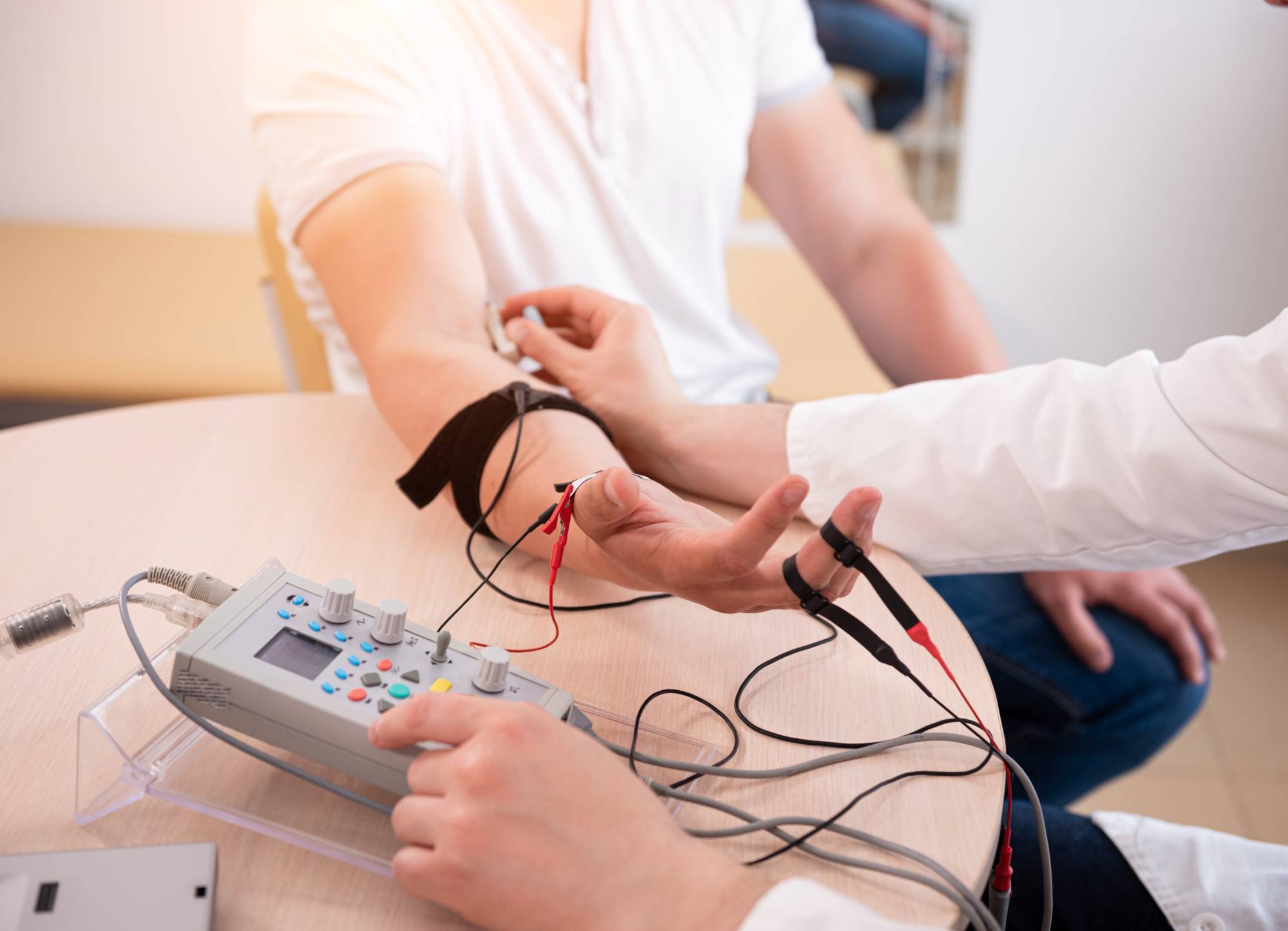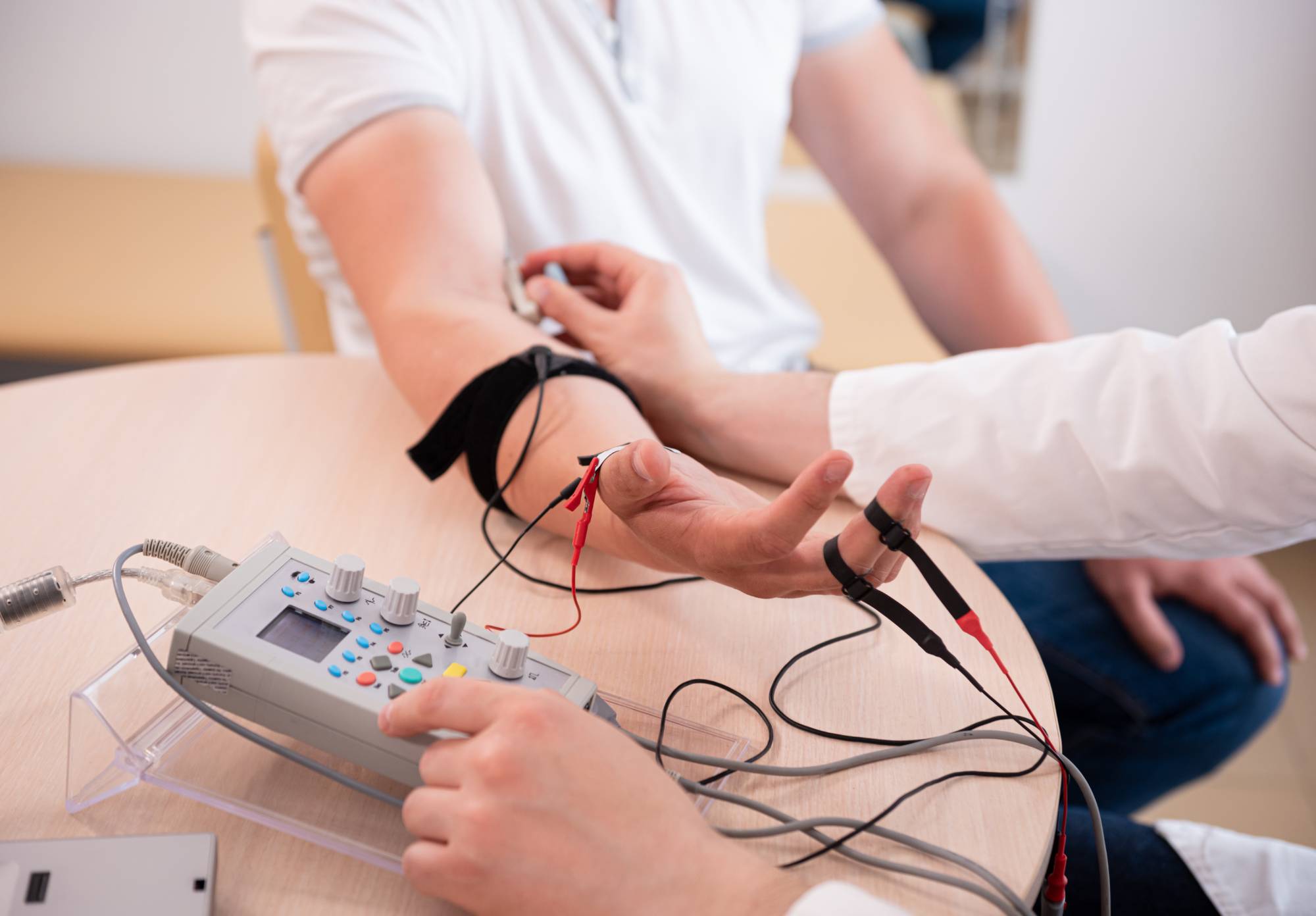Precise EMG testing that reveals what’s really causing your symptoms, so you can move forward with confidence.

Reviews

You’ve been dealing with numbness, tingling, or muscle weakness for weeks or months. Your doctor suspects nerve damage but needs proof. That’s where EMG testing comes in.
Electromyography testing measures the electrical activity in your muscles and nerves. It shows us exactly where the problem is and how severe it might be. No more guessing. No more wondering if it’s all in your head.
When you walk out of here, you’ll have concrete answers. Your referring doctor will get a detailed report that helps them create the right treatment plan. You’ll know whether it’s carpal tunnel, pinched nerves, muscle disorders, or something else entirely.
We’ve been serving the Edgemere community with reliable diagnostic testing for years. Our team includes board-certified physicians and experienced technicians who understand that you’re not just looking for a test – you’re looking for answers.
We use modern EMG equipment that meets the highest medical standards. Every test is performed with precision and care. We know you’re probably anxious about the procedure, so we explain everything as we go.
Our facility is designed for your comfort and convenience. No need to travel into Manhattan for quality nerve testing when you can get it right here in Edgemere.

First, we’ll review your symptoms and medical history. Our technician will explain the EMG procedure and answer any questions you have. You’ll change into a hospital gown so we can access the areas being tested.
The nerve conduction study comes first. We place small electrodes on your skin and send mild electrical pulses to measure how well your nerves conduct signals. It feels like small static shocks – brief and tolerable.
Next is the electromyography portion. We insert a thin needle electrode into specific muscles to measure electrical activity. You’ll contract and relax the muscle as directed. The needle is thin, similar to acupuncture needles.
The entire EMG diagnostic testing process typically takes 30 to 60 minutes, depending on how many areas we’re examining. Results are available immediately, and your doctor will receive a comprehensive report within 24 hours.

Ready to get started?
Your EMG testing includes both nerve conduction studies and electromyography measurements. We test multiple muscle groups and nerve pathways to get a complete picture of what’s happening in your body.
We can diagnose conditions like carpal tunnel syndrome, pinched nerves, peripheral neuropathy, muscle disorders, and spinal nerve compression. The test results help determine if your symptoms are caused by nerve damage, muscle problems, or both.
You’ll receive detailed explanations of your results before you leave. We coordinate directly with your referring physician to ensure they have everything needed for your treatment plan. Most insurance plans cover EMG testing when medically necessary, and our staff handles all the paperwork.

New York:
Florida:
Support